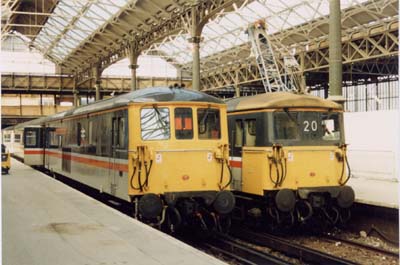Alternative online RPG formats
Tuesday, August 31st, 2004Most of the online RPGs I play are versions of the traditional tabletop RPG were you play one character. But there are other ways to do things, especially online
The Phoenyx is running a Lexicon Game, where the ‘characters’ are a bunch of (possibly revisionist) history scholars, and the actual gameplay revolves around their historical writings; it’s essentially a collaborative worldbuilding exercise.
Meanwhile, on DreamLyrics, Just John has a much stranger idea:
Would anybody here be into a game where your player characters hold jobs in a corporation-like organization, and where power is exercised in the traditional bureaucratic ways of deliberate obstructionism, backside-covering, slander and empire building?
And if you’re into that, would you be into having your PCs build an actual website? As players, the fun could include embellishing your corner(s) of the site with opaque jargon, badly-implemented forms, ridiculous HTML, irrelevant help screens, irritating slogans and all the other things that make corporate web sites such memorable experiences.
To top it off, the gag would be that to an innocent outsider surfing the web, this would look like a real site! My vague notion is that we’d run a standard game section here on DreamLyrics to coordinate stuff and roleplay staff meetings, but nothing on the site we’d build would link back to the game section.
A lot of scope for evil fun with this idea. I can imagine an incomprehensible (and impossible to comply with) policy on linking, and players should be responsible for sending equally incomprehensible cease-and-desist letters to any blogger than dares to link to the site.

